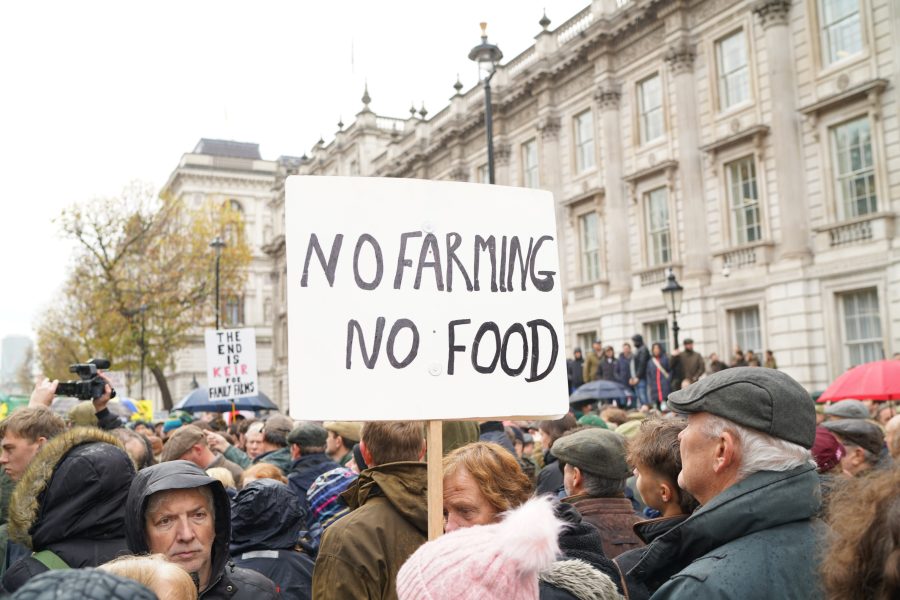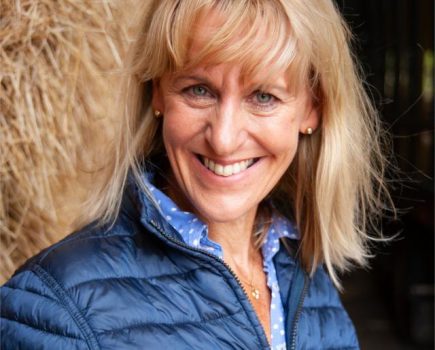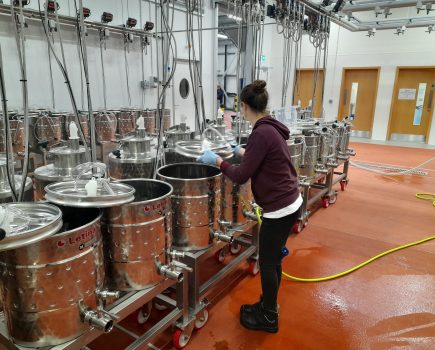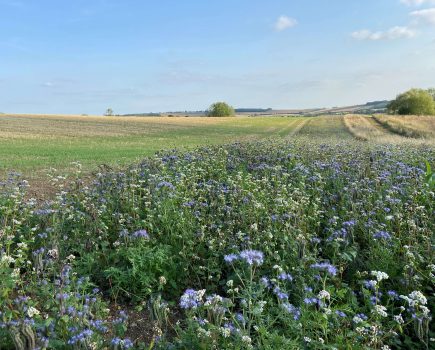Government claims around the number of farmers likely to be affected by the Chancellor’s planned changes to inheritance tax continue to be challenged by leading industry players.
Both the NFU and the Central Association of Agricultural Valuers (CAAV) have put forward evidence that the number who will be caught by the change in the rules – something farmers were promised would not be in the budget – will exceed the Government’s figures.
Leading figures in the industry have meanwhile been giving evidence to the Environment, Food and Rural Affairs Select Committee (EFRA), with NFU president Tom Bradshaw reported to have become “emotional” while warning that more farmers could take their lives because of the threat to their livelihoods and family farms.
Farmers themselves have continued to raise public awareness of the issues by mounting more high-profile demonstrations, driving tractors around Westminster in central London and staging go slows on dual carriageways.
Despite farmers continuing to put pressure on the Government on several fronts while calling for the proposals to be put on hold pending wider consultation, Prime Minister Sir Keir Starmer was still insisting as South East Farmer went to press that the “vast majority” of farmers would not be affected by the tax changes.
In contrast, the NFU has put forward research suggesting 75% of family farms will be hit by changes to Agricultural Property Relief (APR) set to be introduced from April 2026 that would mean farm businesses facing an inheritance tax rate of 20% on agricultural assets valued at over £1 million.
The CAAV has suggested that the Government has under-estimated the number of farmers affected by a factor of at least five, meaning that it would hit 75,000 producers over a generation, not 500 in 2026/27.
“Looking at HMRC’s express advice on tax returns, it states that where full business property relief (BPR) applies, as in most farming cases, the values given in tax accounts should be used, not the open market value,” said Jeremy Moody, secretary and adviser to the CAAV.
“Farmers’ accounts for assets that qualify for BPR, like machinery and livestock, are based on historic cost. This means they will be valued at significantly less than open market value.”
The CAAV statement pointed out that the new rules will mean all assets needing to be accounted for at current market value, bringing significantly more people into paying inheritance tax and adding more cost to those already affected.
The CAAV’s research shows that this change will have a particular effect on many livestock farms. “Not only does HMRC allow that the ‘deemed cost’ for cattle in accounts is 60% of market value, but the statutory ‘herd basis’ option for accounting for tax on breeding and production animals is based on the original cost of a herd or flock,” explained Mr Moody.
“Market value would mean a potentially massive uplift over the accounting value for a long-standing dairy herd, for example.”
When BPR was offered at 100% on these assets, it made sense for HMRC not to require them to be independently valued, so saving time, effort and cost, the CAAV said. But now livestock, machinery, silage and other operational farming assets will have to be valued upon death, with tax due on estates worth over £1m.
“All of this means that yet more money will have to be found to pay the tax, whether by selling more land or more operational business assets or foregoing more income and investment,” Mr Moody added.
“It was clear from the outset that the Government had not appreciated the potentially devastating implications of this new farm tax. Not only did our original research show it had underestimated its impact five-fold by omitting large numbers of farmers from its figures, it’s now clear that even more people will be affected. This hurts the people it claims to protect and protects those it claims to hurt. It is time to drop this tax.”
With the NFU estimating that three-quarters of family farms will be affected, Surrey Vice Chair Paula Matthews urged the Government to recognise it has been working off the wrong figures, revisit its plans and save family farms from closure.
She commented: “The evidence is clear for all to see that the Government is working off the wrong figures when it claims APR changes will only impact the wealthiest farmers.
“These changes will force the closure of many small and medium-sized family farms, which will need to sell up to pay the tax bill, and will impact tenant farmers, with landowners more inclined to sell their land, making less land available for farming here in Surrey and the South East.
“This will rip the heart out of rural communities, which are heavily dependent on the farming industry.
“The country’s national food security will be under threat, the great British countryside will suffer, an enormous amount of positive environmental work currently being done by farmers will discontinue and food prices in supermarkets could increase.”
The NFU also pointed out that while the Government had announced that the proposals would only impact the wealthiest farmers, with the Treasury claiming only 27% of APR claims were above £1m, DEFRA’s own figures showed that 66% of farms were worth more than the £1 million threshold.
The organisation said further analysis, after consultation with former Treasury and Office for Budget Responsibility economists, revealed that 75% of commercial family farms would be impacted.
“The new analysis finds that the majority of medium-sized working farms that will be hit by the liability will not be protected by the ten-year payment window because the resulting payments would still be unmanageably large relative to the economic returns they earn,” the NFU went on.
“Put simply, the majority of farms don’t earn enough money to pay the potential inheritance tax bill without selling off some of their land or business, making the farm business unviable.”
The EFRA committee heard from experts including Jeremy Moody, NFU president Tom Bradshaw, Tenant Farmers’ Association national chair Robert Martin and Country Land and Business Association (CLA) president Victoria Vyvyan.
For more like this, sign up for the FREE South East Farmer e-newsletter here and receive all the latest farming news, reviews and insight straight to your inbox.







